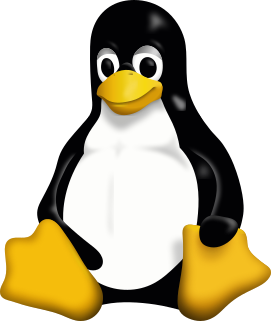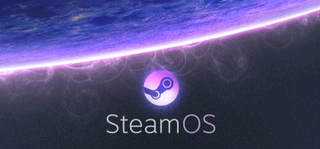Related Research Articles

Wine is a free and open-source compatibility layer that aims to allow computer programs developed for Microsoft Windows to run on Unix-like operating systems. Wine also provides a software library, known as Winelib, against which developers can compile Windows applications to help port them to Unix-like systems.
Direct3D is a graphics application programming interface (API) for Microsoft Windows. Part of DirectX, Direct3D is used to render three-dimensional graphics in applications where performance is important, such as games. Direct3D uses hardware acceleration if it is available on the graphics card, allowing for hardware acceleration of the entire 3D rendering pipeline or even only partial acceleration. Direct3D exposes the advanced graphics capabilities of 3D graphics hardware, including Z-buffering, W-buffering, stencil buffering, spatial anti-aliasing, alpha blending, color blending, mipmapping, texture blending, clipping, culling, atmospheric effects, perspective-correct texture mapping, programmable HLSL shaders and effects. Integration with other DirectX technologies enables Direct3D to deliver such features as video mapping, hardware 3D rendering in 2D overlay planes, and even sprites, providing the use of 2D and 3D graphics in interactive media ties.
CodeWeavers is a company that sells a proprietary version of Wine called CrossOver for running Windows applications on macOS and Linux. The company was founded in 1996 as a consultancy, eventually moving entirely over to Wine development and support. The CrossOver version of Wine is regularly refreshed with the latest free Wine patches; likewise, patches from the company are sent back to the Wine project almost immediately. CodeWeavers is a major contributor to the Wine project, a free software / open-source software project that helps Windows applications run on different x86-based operating systems, hosts the project's website, and employs the project's maintainer, Alexandre Julliard, as their CTO.

Loki Entertainment Software, Inc. was a video game developer based in Tustin, California, United States, that ported several video games from Microsoft Windows to Linux. It took its name from the Norse deity Loki.

A product key, also known as a software key, is a specific software-based key for a computer program. It certifies that the copy of the program is original. Activation is sometimes done offline by entering the key, or with software like Windows 8.1, online activation is required to prevent multiple people using the same key. Not all software has a product key, as some publishers may choose to use a different method to protect their copyright, or in some cases, such as free or open source software, copyright protection is not used.
CrossOver is a Microsoft Windows compatibility layer available for Linux, macOS, and Chrome OS. This compatibility layer enables many Windows-based applications to run on Linux operating systems, macOS, or Chrome OS.
A source port is a software project based on the source code of a game engine that allows the game to be played on operating systems or computing platforms with which the game was not originally compatible.
Source is a 3D game engine developed by Valve. It debuted as the successor to GoldSrc with Counter-Strike: Source in June 2004, followed shortly by Half-Life 2 in November, and has been in active development since. Source does not have a concise version numbering scheme; instead, it is designed in constant incremental updates. The successor, Source 2, was officially announced in March 2015, with the first game to use it being Dota 2, which was ported over from Source later that year.
Darwine was a port of the Wine libraries to Darwin and Mac OS X. The Darwine project intended to port and develop Wine as well as other supporting tools that would allow Darwin and Mac OS X users to run Windows applications and to provide a Win32 API compatibility at application source code level.
Steam is a video game digital distribution service by Valve. It was launched as a standalone software client in September 2003 as a way for Valve to provide automatic updates for their games, and expanded to include games from third-party publishers. Steam has also expanded into an online web-based and mobile digital storefront. Steam offers digital rights management (DRM), matchmaking servers, video streaming, and social networking services. It also provides the user with installation and automatic updating of games, and community features such as friends lists and groups, cloud saving, and in-game voice and chat functionality.
DOSBox is an emulator program which emulates an IBM PC compatible computer running a DOS operating system. Many IBM PC compatible graphics and sound cards are also emulated. This means that original DOS programs are provided with an environment in which they can run correctly, even though the modern computers have dropped support for the old environment.
Mac gaming refers to the use of video games on Macintosh personal computers. In the 1990s, Apple computers did not attract the same level of video game development as Microsoft Windows computers due to the high popularity of Microsoft Windows and, for 3D gaming, Microsoft's DirectX technology. In recent years, the introduction of Mac OS X and support for Intel processors has eased porting of many games, including 3D games through use of OpenGL and more recently Apple's own Metal API. Virtualization technology and Boot Camp also permit the use of Windows and its games on Macintosh computers. Today, a growing number of popular games run natively on macOS, though as of early 2019, a majority still require the use of Microsoft Windows.

Linux is a family of open source Unix-like operating systems based on the Linux kernel, an operating system kernel first released on September 17, 1991, by Linus Torvalds. Linux is typically packaged in a Linux distribution.
Linux gaming refers to playing video games developed for the Linux operating system.

SteamOS is the primary operating system for the Steam Machine gaming platform by Valve. It is based on the Debian distribution of Linux.

VOGL is a debugger for the OpenGL rendering API intended to be used in the development of video games. VOGL was originally written at RAD Game Tools and Valve. VOGL is free and open-source software subject to the terms of the MIT License.

Steam Link is both hardware and software applications that enable streaming of Steam content from a personal computer or a Steam Machine wirelessly to a mobile device or other monitor. Steam link was originally released as a hardware device along with the debut of Steam Machines in November 2015. Valve discontinued the Steam Link in November 2018, in favor of supporting its software-based Steam Link application for mobile devices and smart televisions, as well as providing Steam Link as a software package for the Raspberry Pi microcomputer.

Vulkan is a low-overhead, cross-platform 3D graphics and computing API. Vulkan targets high-performance realtime 3D graphics applications such as video games and interactive media across all platforms. Compared to OpenGL and Direct3D 11, and like Direct3D 12 and Metal, Vulkan is intended to offer higher performance and more balanced CPU/GPU usage. Other major differences from Direct3D 11 and OpenGL are Vulkan being a considerably lower-level API and offering parallel tasking. Vulkan also has the ability to render 2D graphics applications. In addition to its lower CPU usage, Vulkan is also able to better distribute work among multiple CPU cores.
References
- ↑ Eikum, Andrew (April 16, 2020). "Releases · ValveSoftware/Proton" . Retrieved April 17, 2020.
- ↑ Compatibility tool for Steam Play based on Wine and additional components: ValveSoftware/Proton, Valve, November 3, 2019, retrieved November 3, 2019 (Proprietary blob for Steam integration)
- ↑ Dawe, Liam. "Valve officially confirm a new version of 'Steam Play' which includes a modified version of Wine". GamingOnLinux.
- ↑ "Steam for Linux :: Introducing a new version of Steam Play". steamcommunity.com. August 21, 2018. Retrieved August 12, 2019.
- ↑ Evangelho, Jason. "Valve Changes Everything: Windows-Exclusive Games Now Run On Steam For Linux". Forbes. Retrieved August 12, 2019.
- ↑ "Steam adds Proton, making Windows games playable on Linux (at least in theory)". PCWorld. August 21, 2018. Retrieved August 12, 2019.
- ↑ "doitsujin/dxvk". GitHub. Retrieved April 17, 2020.
- ↑ "ValveSoftware/Proton". GitHub. Retrieved April 17, 2020.
- ↑ Crider, Thomas (April 1, 2020), GloriousEggroll/proton-ge-custom , retrieved April 1, 2020
- ↑ "A look over the ProtonDB reports for June 2019, over 5.5K games reported to work with Steam Play". GamingOnLinux. Retrieved November 4, 2019.
- ↑ DeFore, Buck. "ProtonDB: Gaming reports for Linux using Proton and Steam Play". ProtonDB.com. Retrieved October 8, 2019.
- ↑ Evangelho, Jason. "Linux Gaming Tip: Don't Buy That Game On Steam Without Using This Tool". Forbes. Retrieved August 12, 2019.